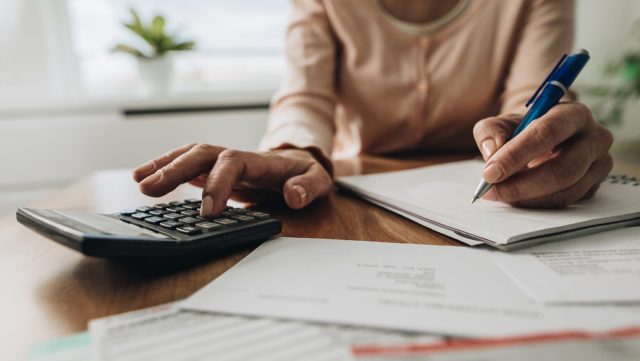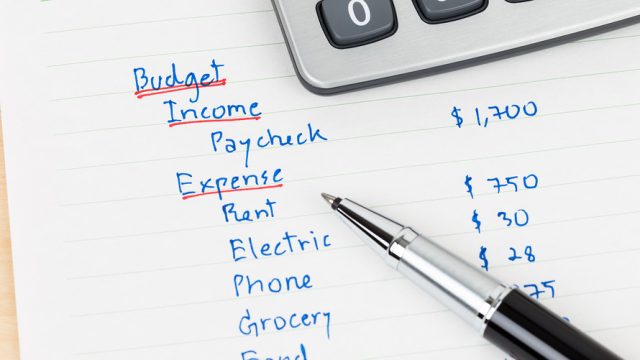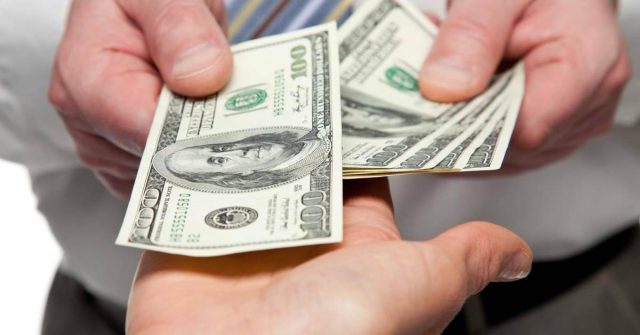7 Hacks to Financial Recovery When You Overspend Money
By Lyle D. Solomon
January 5, 2025 • Fact checked by Dumb Little Man

Do you overspend regularly? If so, let me tell you that you aren't the only one.
Several times we went to Walmart for just one item but ended up leaving with five other things that weren't even on our list.
You tend to beat yourself up or feel guilty due to an unforeseen shopping binge. This often results in higher levels of emotional spending, which can lead to debt problems.
Thankfully, there are hacks to recover from spending binges and regain control of your finances.
Hacks To Recover When You Overspend
Here are a few hacks to get back on the right track after overspending money.
1. Forgive Yourself

The first thing you need to do is acknowledge the fact that you went over your budget and forgive yourself for it. You won't get anywhere if you constantly wallow in sorrow over the choices you've made in the past. It takes place more frequently than most people are willing to accept, yet it is not the end of the world.
Regaining control of your finances is easier if you stop feeling sorry for yourself and think about what to do next.
2. Go on a spending freeze
In the first place, you need to put a stop to all of your spendings. There will be no restaurant dinners or online shopping on Amazon and arrange an immediate halt to all expenditures until you have a clearer picture of what has transpired.
Just because you went over your budget doesn't mean you should stop trying to save money for the rest of the month. Take things one day at a time. Make responsible choices to avoid causing more problems than are required.
3. Find out where you overspent

The fact is you have overspent. Now it's time to look through your accounts and figure out where you splurged. Were the prices too high at the restaurants? Groceries? Gifts? Purchases made at random from Walmart? It may be more convenient to ignore what is occurring but confronting the problem head-on will enable you to understand it better. Most importantly, it will help you take actions that will move you closer to a solution.
Open a spreadsheet and go through everything.
● Extra charges on your credit card
● Extra payments from your checking account or savings account
Again, there is no guilt in calculating your overspending. You know exactly how much you overspent and have an actual number of formulating a strategy.
4. Return the items to the store
Next, examine some of your purchases to determine if you can return or sell anything if you have second thoughts.
With the original receipt, most stores will enable you to return products within a defined time window. Even if you have lost the receipt, you can exchange it for store credit or a gift card.
If you can't return the item, consider selling it online to recover your money.
5. Make a budget to take control of your financial situation

If you don't have a budget, now is the time to create one for yourself and your household. To do this, simply tally up your recurrent expenditures and deduct that total from your net income.
You should put whatever is left over into a separate account and utilize that money for your discretionary expenditures. Break down the total into quantities that correspond to each category. If you already have a budget, you should check that everything in it is up to date. Find out the areas where you spent more than the allotted amount.
⫸ Make a short-term budget.
Make a short-term budget that will see you through to your next paycheck. When you find that you have overspent, a mini-budget can serve as a stopgap measure to help you get back on track. You begin it today and continue until you receive your next paycheck.
⫸ Make a long-term budget.
Create a realistic budget that will work in the long term. Most individuals make a budget but do not know whether it will work. Your time is worth anything if your budget cannot be considered reasonable and won't be successful. You are doomed to fail and give up on creating budgets.
6. Make extra payments
If you have financed a significant purchase with a credit card, it is time to get serious about paying off your debt. Make payments that are greater than the minimum required.
Even though your creditor demands $50 per month toward your balance, this doesn't imply you shouldn't pay more. Instead, you should try to pay extra money toward your debts every month. You tend to splurge less when making extra payments to pay off debt. If you can't make additional payments, opt for debt consolidation to pay off debt triggered by your overspending habits.
7. Earn more dollars

Earning extra money immediately after a spending binge would improve your mood and financial life. When we've dug ourselves a deep financial hole, the extra money can be essential for getting us back on track.
Consider working overtime, expanding your current side gig, or obtaining a part-time position. Additionally, you can earn money online by providing freelancing services, testing websites, completing surveys, or selling stuff from home.
Conclusion
A budget is a guide, but nobody ever gets it completely figured out. Having a strategy and keeping a close eye on your spending is the most effective way to avoid future instances of unnecessary overspending.
These hacks can get you back on track with your budget without additional debt. Overspending is something that can happen to even the most careful budgeters sometimes. So be careful.
Lyle D. Solomon
Lyle David Solomon is a licensed attorney in California. He has been affiliated with the law firms in California, Nevada, and Arizona since 1991. As the principal attorney of Oak View Law Group , he gives advice and writes articles to help people solve their debt problems.







